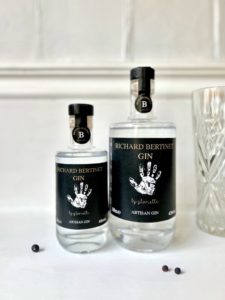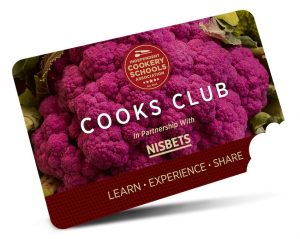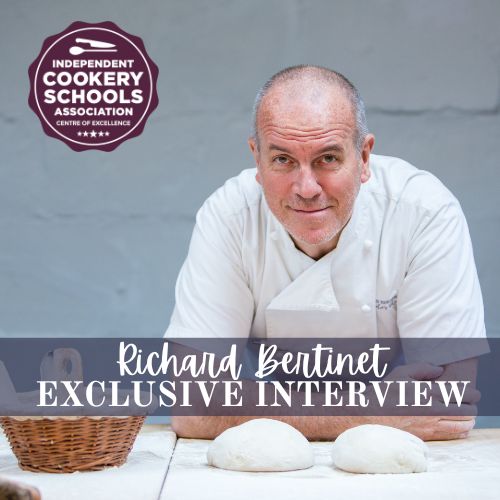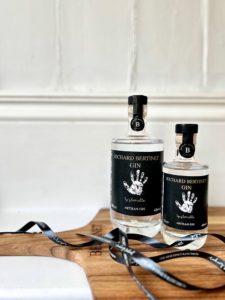Richard Bertinet: 20 Years, One Gin, and a Whole Lot of Bread
Celebrating two decades of The Bertinet Kitchen, a new gin, and the joy of teaching hands-on craft.
The Bertinet Kitchen in Bath is an ICSA ‘Academy’ for their culinary courses, and ‘Centre of Excellence’, awarded for their for their depth of knowledge, and baking experiences.
We caught up with founder Richard Bertinet, to share his passions for ‘real bread’ and reflect on the past 20 year’s of theThe Bertinet Kitchen, and plans for the future.
“It’s not just about the bread — it’s about the people. Teaching is about sharing, about confidence, about joy.”
Richard Bertinet
The Bertinet Kitchen in Bath is an ICSA ‘Academy’ for their culinary courses, and ‘Centre of Excellence’, awarded for their for their depth of knowledge, and baking experiences.
We caught up with founder Richard Bertinet, to share his passions for ‘real bread’ and reflect on the past 20 year’s of theThe Bertinet Kitchen, and plans for the future.
Before we talk about the cookery school, I must ask you about your new celebratory gin…
Richard smiles. “Ah yes, the gin!” he says, clearly delighted.
“It’s something a little different to mark our 20th year — a celebration of flavour, friendship, and fermentation.”
 The Bertinet 20th Anniversary Gin
The Bertinet 20th Anniversary Gin
Question: What inspired you to create a gin to mark the 20th anniversary of The Bertinet Kitchen?
Richard: It all started with a family-run distillery in Dorset. Their son had been very ill and used my books to bake while he recovered. Years later, when the family took over a gin company, they approached me about doing something special together. The idea of celebrating 20 years of The Bertinet Kitchen with a gin made with the same care and craft as good bread just felt perfect.
“It’s a gin made with the same care and craft as good bread.”
Q: How is your gin different from others on the market?
Richard: We’ve infused it with my sourdough bread. The distillers use vacuum maceration for a little while, allowing the bread to bring a unique depth of flavour — almost like seasoning the spirit with fermentation. It’s subtle but it gives the gin real character, a nod to everything we’ve built around bread and fermentation.
Q: The bottle design is striking — black and white with your handprint. Why that look?
Richard: I’ve always loved simplicity. Black and white is timeless — no fuss, no hiding. The handprint is my signature, the same one we use on our aprons and T-shirts. It represents craftsmanship, the human touch, and the connection between the hands that bake and the hands that pour.
He laughs. “We didn’t want anything too fancy — just something honest, like the bread we make every day.”
20 ‘quick fire’ Questions for 20 Years
The Early Days
Q: Who was the first guest chef at your new Chef’s Table?
It was Monisha, an Indian cooking teacher who has been with us for 20 years. She was one of our very first teachers, so it felt right to give her the first spot. She is a regular guest hosting masterclasses
Q Why did you sell the bakery after only 10 years?
R. I knew I couldn’t run both a bakery and a school forever. My plan was always to build it for ten years and then move on. We sold after eight, just before Covid hit — the right decision at the right time.
Q. What are you most proud of about the bakery brand?
R I always had the vision of offering daily simple good bread using only 3 ingredients instead of the usual white sliced that was on offer. Bread that people could trust. We achieved that and were the first artisan bakery to offer that on the supermarket shelves. They’ve changed things, of course, but the fact it continues shows we built something that lasts.
“If you build something with integrity, it will last — even when you step away.”
Building a School
Q. What sparked the idea to open a cookery school?
R: While teaching in London, I realised I could connect with people better than the big schools were doing. I redesigned the format so people worked together, not alone. That sense of sharing is what bread is all about.
Q. How did the launch of your first book help the school?
R: My book Dough came out the same week the school opened. The publicity gave us nearly a year of press — it really put us on the map.
Q. What challenges did you face in the early days?
R: Empty classes, cancellations, long hours. But we stuck to our principles — small groups, hands-on teaching — and word spread.
Q. Why keep the classes at twelve people?
R: It’s the perfect number — intimate, manageable, personal. Any bigger, and it becomes a demo, not a class.
Philosophy & People
Q. How has your teaching philosophy evolved?
R: I now focus more on people’s emotions. If someone feels relaxed, safe, and happy, they learn better. Baking isn’t just technical — it’s emotional. People leave with confidence, not just loaves.
“Baking isn’t technical — it’s emotional. Confidence is what people take home.”
Q. What’s been the biggest challenge over 20 years?
R: Keeping classes full and maintaining standards. If even two people don’t show up, it affects the day. So we built strong systems — and a warm, welcoming atmosphere that keeps people coming back.
Q. How did Covid change things?
R: We adapted fast — online classes, shorter workshops, then the Chef’s Tables. It also reminded people why real bread matters. The demand came back stronger.
Innovation & Inclusion
Q. Have dietary needs like gluten-free changed your teaching?
R: Absolutely. We now run gluten-free classes, and they’re emotional. People cry when they taste proper bread again. That’s when you realise how powerful food can be.
Q. What role does Bath play in your success?
R: Bath is everything. It’s beautiful, welcoming, and full of life. People come for a class and stay for the city — it’s a whole experience.
Recognition & Reflection
Q. What has been your proudest professional recognition?
R: Winning BBC Radio 4 Food & Farming Food Champion of the Year. It meant a lot because it came from the public, not judges.
Q. What about international recognition?
R: My first book won James Beard, IACP, and Julia Child awards. And when Gourmet magazine named us one of the world’s top ten cookery schools, that was huge.
Advice & What’s Next
Q. What advice would you give someone starting out with bread?
R: Don’t start with sourdough. Start with a simple white dough and learn the basics. Bread is like a jigsaw — do the corners before the middle. Build a foundation first.
Q. What’s next for you and the school?
R: More Chef’s Tables, more online projects, maybe a garden space. But mostly, to keep teaching. I love being in that room, watching people discover what their hands can do.
“Twenty years sounds like a long time, but it still feels like we’re just getting started.”
Closing Note
Two decades on, Richard Bertinet remains as passionate as ever — about bread, people, and passing on the joy of real food.
His gin may mark a milestone, but it’s the human connections — forged one loaf, one class, one laugh at a time — that truly define the Bertinet legacy.
ICSA Membership Reflections
As a long standing member of ICSA and early founder, please share your thoughts on ICSA as a member:
Q: Why is ICSA important for cookery schools like yours?
R: Over the past 20 years, I’ve seen so many cookery schools open without the right experience or qualifications. If someone has a poor experience at one of those schools, it can put them off forever. ICSA gives reassurance — it’s like a Michelin Guide for cookery schools. If you see the ICSA stamp, you know the teaching is professional, hands-on, and worth trusting.
Q: How has ICSA supported you and other schools?
R: ICSA has helped raise standards across the board. It gives schools like mine credibility and protects the reputation of the industry. It also creates a network — a community of people who take teaching seriously. That’s vital, because this business is tough, and we need that support.
Q: What does ICSA membership mean for students who book classes?
R: For students, it means confidence. They know they’re coming to a place that’s been checked, that offers a proper, immersive experience, not just a chef doing a demo. They’ll leave having really learned something. That trust is priceless, and it’s why I’m proud to be part of ICSA.
Thank you Richard for helping grow the passion for real bread amongst our ICSA students, alongside your own and of course the wider Uk population.
Without you we’d all be eating fake focaccia and foax dough!
BOOK YOUR NEXT BAKERY EXPERIENCE AT THE BERTINET KITCHEN HERE
WIN A Signed bottle of Richard Bertinet Gin.
Sign up to our ICSA Cook’s Club Below.
Instagram: Follow us on Instagram & comment on this post here!

Join our ICSA COOKS CLUB:
Learn more about ICSA, our members and receive regular cookery tips from the professionals, along-side some of the industry discounts chef mentions, available from our friends and partners.


